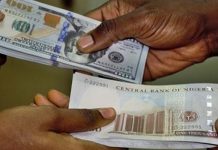The British Pound Sterling , on Monday, July 17, dropped back below $1.31, after hitt its highest levels in 10 months at the end of last week on a broad dollar sell-off.
Traders were cautious as four days of Brexit negotiations began in Brussels.
The pound jumped almost 2 cents on Friday to hit $1.3113 <GBP=D3, its strongest since last September, after U.S. inflation and retail sales data came in weaker than expected, putting into doubt the prospect of a further rate hike from the Federal Reserve this year.
But sterling started the week by edging down from those highs, trading down 0.1 percent on the day at $1.3089 and flat against the euro at 87.50 pence, still close to a three-week peak hit on Friday.
Brexit Secretary David Davis, in the Belgian capital for talks with the European Union’s chief negotiator Michel Barnier a month after a first meeting, said on Monday that having “made a good start” during their last encounter, “this week we’ll be getting into the real substance”.
With less than two years to settle divorce terms before Britain leaves, deal or no deal, on March 30, 2019, the 27 other EU national leaders want British Prime Minister Theresa May to rally her divided nation swiftly behind a clear, detailed plan that can minimise economic and social disruption across Europe.
Investors will be watching the talks closely, with any signs that Britain will lose preferential access to Europe’s single market likely to weigh on the currency.
“It seems that the British government wants to (take) major steps towards the EU in the upcoming round of negotiations… It has for example admitted by now that it would meet its financial obligations towards the EU — an auspicious beginning,” wrote Commerzbank analysts in a note to clients.
British finance minister Philip Hammond was the subject of a number of newspaper stories over the weekend, including one which said he had called public sector workers “overpaid”. The finance minister said he was being attacked for his Brexit views.
Some analysts, though, said sterling’s main drivers at the moment were less about politics and more about the economy and the outlook for monetary policy. Recent warnings from Bank of England policymakers that interest rates could be set to rise have provided support to the currency.
Investors will be watching British inflation data due on Tuesday closely.















